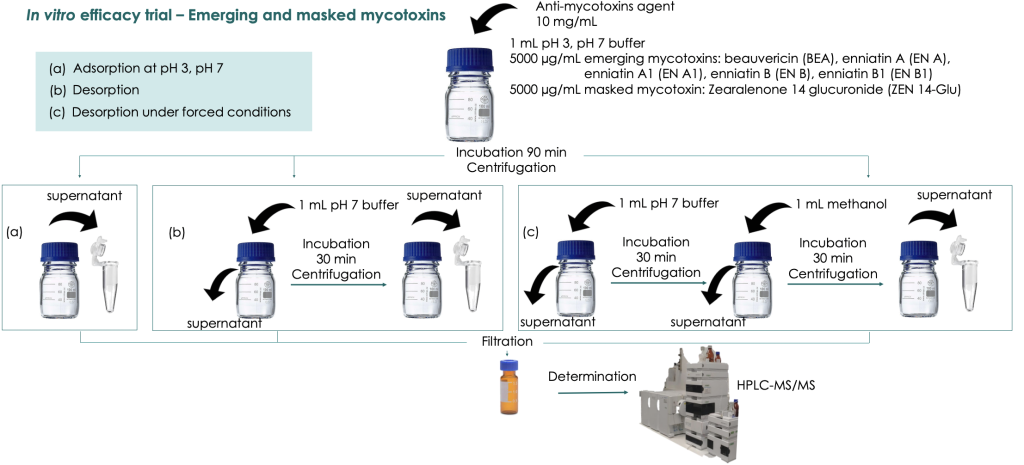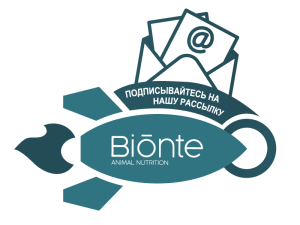INTRODUCTION
Mycotoxins are low-molecular-weight secondary metabolites produced by fungi. Mycotoxins are considered a very important public health issue because of their adverse effects on animals and humans. Emerging mycotoxins are mycotoxins that are not routinely determined and are not legislatively regulated, including beauvericin and enniatins. Modified mycotoxins formed by conjugation with polar compounds, as a plant defense mechanism, are not analyzed by conventional methods and may be more toxic than the original mycotoxin.
OBJECTIVE
The aim of the present study was to evaluate the in vitro efficacy of an anti-mycotoxins agent that contains selected binding material and natural extracts besides an exclusive combination of yeasts, against some emerging and modified mycotoxins.
MATERIALS AND METHODS
RESULTS
CONCLUSIONS
The innovative anti-mycotoxins agent tested in the present study is a promising strategy with high in vitro efficacy against emerging (beauvericin and enniantins) and modified (ZEN14-glucuronide) mycotoxins and low desorption under gastrointestinal conditions.





